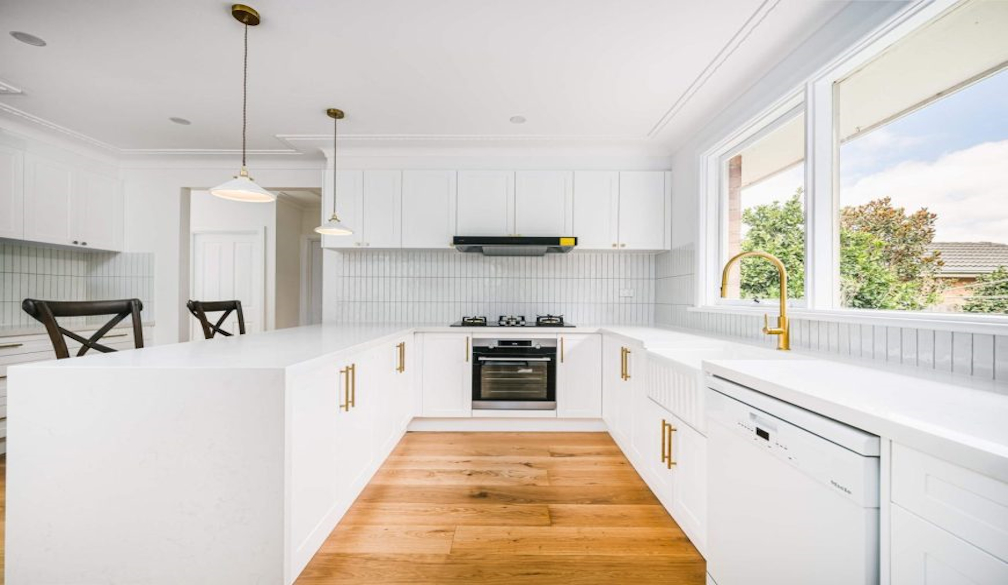Key Factors to Consider Before Starting a Home Renovation
- Written by Sky Digital

Embarking on a home renovation can be an exciting way to refresh your living space, increase your home's value, and improve your quality of life. However, before you dive into home renovations, there are several critical factors to consider to ensure a smooth and successful project. Here’s a comprehensive guide to help you navigate the planning process and make informed decisions.
-
Define Your Goals and Budget
Before starting any renovation, it’s essential to clearly define your goals. Are you aiming to update outdated features, improve functionality, or increase the value of your property? Understanding your objectives will guide your decision-making process.
Once you have a clear vision, establish a realistic budget. Consider not only the costs of materials and labour but also potential unexpected expenses. It’s wise to set aside an additional 10-20% of your budget for contingencies. This approach ensures you’re prepared for any surprises that may arise during the renovation.
-
Research and Choose the Right Professionals
Selecting the right professionals can make or break your renovation project. Whether you’re looking for builders, architects, or designers, thorough research is crucial. Look for professionals with experience in home renovations in Melbourne or your specific area, and check their references and past projects.
Ask for detailed quotes and compare them to ensure you’re getting value for your money. Additionally, verify that the professionals you choose are licensed and insured. This step will protect you from any potential issues that may arise during the renovation.
-
Consider the Impact on Your Daily Life
Renovations can be disruptive, so consider how the project will affect your daily routine. If you’re renovating a major part of your home, such as the kitchen or bathroom, think about how you will manage without these essential spaces. Plan for temporary living arrangements or make arrangements for alternate facilities.
Communicate with your contractor about the timeline and potential disruptions. A well-structured plan can help minimise inconvenience and ensure that you’re prepared for any necessary adjustments.
-
Review and Obtain Necessary Permits
Most major home renovations require permits from your local council or building authority. These permits ensure that your renovation meets safety and building standards. Failure to obtain the necessary permits can result in fines or complications when selling your home in the future.
Check with your local council to understand the requirements for your specific renovation project. Ensure that your contractors are also aware of and adhere to these regulations.
-
Design with the Future in Mind
When planning your renovation, consider not only your current needs but also how your requirements may change in the future. Opt for timeless design elements that won’t quickly go out of style, and choose materials that are durable and low-maintenance.
If you plan to sell your home in the future, think about how your renovation will appeal to potential buyers. Aim for improvements that add value and enhance the overall functionality of your home.
-
Focus on Quality Materials and Craftsmanship
Investing in quality materials and craftsmanship can significantly impact the longevity and appearance of your renovation. While it might be tempting to cut costs by choosing cheaper options, high-quality materials and skilled workmanship often result in better long-term value and fewer maintenance issues.
Work closely with your chosen professionals to select materials that align with your budget and design preferences. Ensure that all work is carried out to a high standard to achieve the best results.
-
Plan for Energy Efficiency
Incorporating energy-efficient features into your renovation can lead to long-term savings and environmental benefits. Consider upgrading to energy-efficient windows, insulation, and appliances. These improvements can reduce your energy bills and make your home more comfortable.
Discuss energy-efficient options with your contractor and explore rebates or incentives that may be available for eco-friendly renovations.
Conclusion
Starting a home renovation involves careful planning and consideration of several key factors. By defining your goals and budget, choosing the right professionals, and planning for future needs, you can ensure a successful renovation project. Whether you’re undertaking home renovations or specific updates in home renovations Melbourne, these steps will help you create a space that enhances your living environment and adds lasting value to your property.
